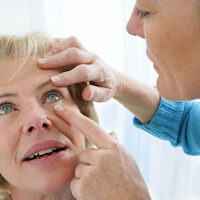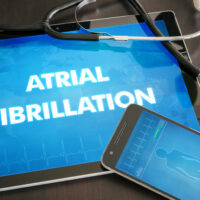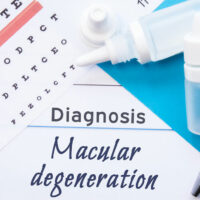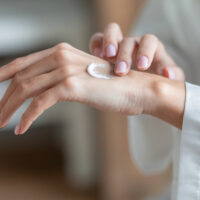Avoid These 5 Things for a Healthy Sleep Cycle

If a person struggles to maintain a good night’s sleep or wakes up feeling exhausted and worn out, it might be due to unhealthy sleep patterns. An unhealthy sleep cycle can affect your overall mental and physical health. Hence, you must be aware of lifestyle habits interrupting your sleep cycles. Avoiding heavy meals and excessive gadget use may help you sleep better. Some things must be avoided to keep your body balanced for healthy sleep.
Importance of a healthy sleep cycle
Adults must sleep 7 to 9 hours every night unless otherwise advised by a healthcare professional. Not having enough sleep can lead to heartburn, irritability, impaired judgment and memory, and decreased ability to fight infections. Regular sleep helps regulate hormones that control hunger, satiety, and mood. Here are a few reasons you must get adequate sleep at night:
Physical health
During sleep, your body repairs and rejuvenates itself, which is essential for proper immune function, hormone regulation, and maintaining a healthy body mass. Poor sleep patterns can lead to various health conditions, such as cardiovascular disease, diabetes, heartburn, unhealthy BMI, and a weakened immune system.
Mental health
Good sleep can improve mood, reduce stress and anxiety, and enhance cognitive function (thinking, remembering, and decision-making). In contrast, chronic sleep deprivation is linked to an increased risk of mental health issues like anxiety.
Safety
Poor sleep can impair our ability to function properly, which can be dangerous. Sleep-deprived individuals are more likely to be involved in accidents and make errors in judgment, particularly while driving or operating heavy machinery.
Things to avoid for a healthy sleep cycle
Caffeine
Caffeine can be a great refreshment when a person feels tired, but regular caffeine intake late at night can negatively impact your health. However, long-term caffeine intake has been associated with health issues such as insomnia and disrupted sleep cycles.
Caffeine is a stimulant that interferes with your ability to fall and stay asleep. It is found in coffee, soda, and some types of chocolate. You must avoid consuming caffeine before bedtime to ensure it doesn’t interfere with sleep.
Not only does caffeine disrupt your body’s cognitive functions, but also it can lead to unpleasant heartburn, which will throw off your natural balance. Caffeine also negatively impacts hormones such as cortisol and adrenocorticotropin (ACTH), which help regulate the sleep cycle.
Spicy foods
Excessive intake of spicy food can harm one’s health, potentially disrupting your sleep cycle. Capsaicin, the active compound in red-hot chili peppers, has been scientifically proven to cause inflammation and body temperature fluctuations, making it difficult to fall asleep. The compound also increases alertness and energy levels and raises blood pressure, further impairing sleep quality.
Eating too many spicy foods can also lead to heartburn or worsen existing gastrointestinal conditions, resulting in discomfort that could make it hard to get adequate rest at night. Consequently, spicy foods reduce the amount of REM sleep (a sleep cycle phase when dreams occur). It makes it difficult for your body to recover fully overnight.
Therefore, avoiding or limiting the intake of spicy foods is crucial for a healthy sleep cycle and staying physically fit and mentally strong.
Large meals
Eating a large meal close to bedtime can cause digestive discomfort and make it harder to fall asleep. It can cause heartburn, linked to the inability to fall asleep or stay asleep through the night. Therefore, it is important to keep meal sizes moderate so that the body isn’t overburdened by digesting too much food at once. Moreover, you won’t be kept awake from heartburn issues at night, which will eventually help you develop a healthy sleep cycle.
Hence, it is best to eat several small meals throughout the day rather than one large meal, which is often linked to fatigue and tiredness.
Blue light
Whether working on your laptop or scrolling your social media feed, excessive screen time puts your sleep cycle at risk. The blue light from electronic devices, such as smartphones and tablets, can affect the production of melatonin – the sleep hormone – making it harder to fall asleep. Thus, it is recommended to avoid using electronic devices for at least an hour before bedtime or to use devices with a night mode that reduces the amount of blue light reaching your eyes.
However, for those who cannot entirely avoid blue light, glasses may help prevent it from directly hitting your eyes. Taking steps to safeguard yourself from blue light will benefit your physical and mental health in the long run.
Stressful activities
Engaging in stressful activities such as work or intense exercise close to bedtime can make it harder to fall asleep. Lack of proper rest can lead to poor heart health, heartburn, and difficulty concentrating. Taking time to relax and unwind from the day’s activities may help you prepare for a good night’s sleep by calming your heart rate and mind. Activities like yoga or light reading can help wind down at night for better rest. Listening to soft music and journaling about the day may also help you fall asleep quickly.
A healthy sleep cycle is essential for maintaining overall physical and mental health. The benefits of a good night’s sleep go far beyond simply feeling well-rested. Sleep is a necessary process for our body to repair and regenerate itself. By changing lifestyle habits and keeping the things mentioned above in check, one can ensure one gets the required amount of sleep needed by the body. However, it is always best to consult your healthcare provider before making any significant changes to your lifestyle habits. By prioritizing good sleep hygiene, you can improve the quality and quantity of your sleep, leading to a happier, healthier, and more fulfilling life.
In addition to improving sleep quality, a healthy sleep cycle can prevent excessive daytime sleepiness. So, one may have to make positive lifestyle changes to manage drowsiness during the day. Here, regular exercise, even a 15-minute walk, can give one an energy boost for the day and help them sleep better at night. Further, adequate exposure to sunlight could work wonders for the body’s internal clock. Staying hydrated and following a strict bedtime routine can also help in managing excessive daytime sleepiness.





